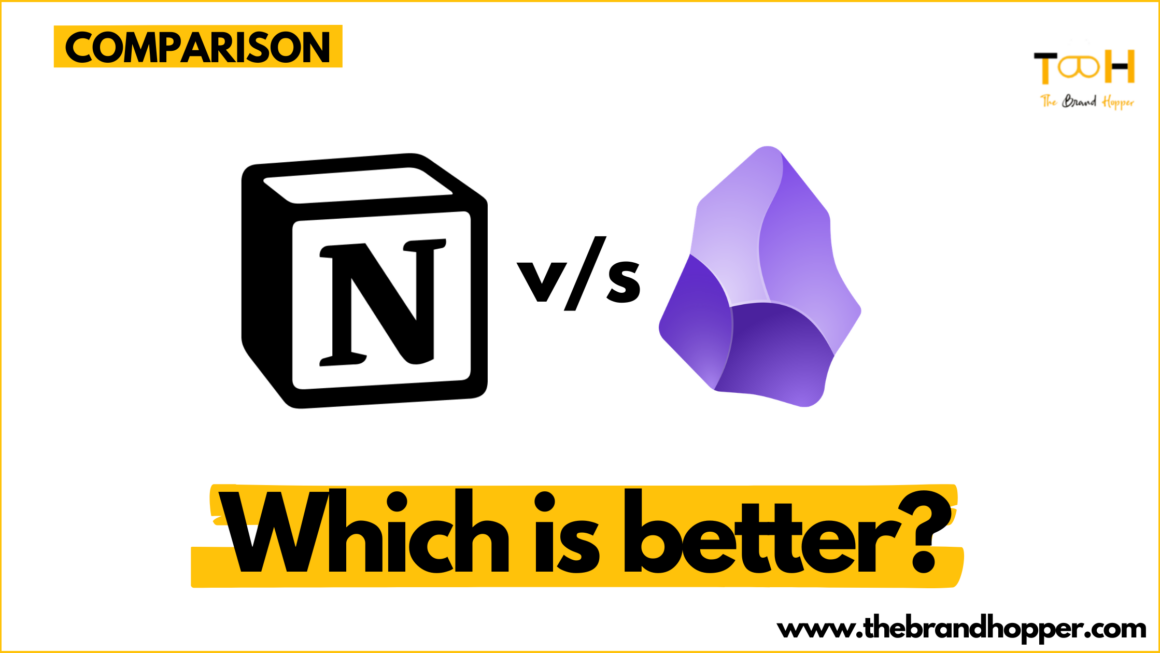The name Merck evokes a rich history intertwined with scientific progress and innovation in healthcare. However, navigating the landscape of Merck can be confusing due to the existence of two separate entities sharing the same historical roots. To gain a clear picture, we must delve into their shared past and distinct present.
Merck’s story begins in 1668, when Friedrich Jacob Merck, an ambitious pharmacist, acquired a pharmacy in Darmstadt, Germany. This humble establishment laid the foundation for a company that would leave an indelible mark on the world. Over the next two centuries, Merck Group, as it became known, transitioned from a local pharmacy to a prominent manufacturer of medicines. They pioneered the production of morphine, a powerful pain reliever, and later introduced other significant medications, including the anthelmintic drug Arecolin, a treatment for worm infections.

In 1891, Merck Group established Merck & Co. as its American affiliate. Theodore Weicker, a partner at Merck Group, led this expansion. Initially, Merck & Co. focused on marketing existing Merck products in the United States and Canada. However, they soon began developing their own research and development capabilities.
The paths of Merck Group and Merck & Co. diverged in 1917 due to the political climate of World War I. Anti-German sentiment in the United States led to the seizure of Merck & Co.’s assets by the American government. Following the war, a legal battle ensued, ultimately resulting in Merck & Co. becoming a fully independent American company in 1919.
This distinction is crucial, as Merck Group and Merck & Co. are independent companies today, despite their shared heritage.
Merck Group, headquartered in Darmstadt, Germany, has flourished into a global science and technology company. Their reach extends beyond pharmaceuticals, encompassing areas like electronics, where they are a leading supplier of liquid crystals for display technologies, and life sciences, where they provide solutions and services for research, development, and production of biopharmaceutical drugs. They remain a family-owned enterprise, with the 13th generation of the Merck family at the helm, emphasizing a commitment to long-term vision and innovation.
Merck & Co., based in Rahway, New Jersey, has emerged as a pharmaceutical powerhouse. Focused solely on healthcare, they have dedicated themselves to developing groundbreaking medicines and vaccines. Their extensive research pipeline targets a wide range of diseases, from cancer and immuno-oncology to infectious diseases and emerging therapies. Notably, they are the publishers of the Merck Manual, a cornerstone medical reference for generations of healthcare professionals.
Both Merck Group and Merck & Co. stand as testaments to the enduring power of scientific curiosity and a dedication to human well-being. Though following separate paths, their legacies are undeniably intertwined, forever linked by their shared origin and a commitment to pushing the boundaries of science for the betterment of humanity.
Top Competitors and Alternatives of Merck & Co
Merck & Co., Inc., commonly known as Merck, is a multinational pharmaceutical company specializing in the development, manufacturing, and marketing of prescription drugs, vaccines, biologics, and animal health products. As a major player in the pharmaceutical industry, Merck faces competition from various companies across different therapeutic areas. Here are some of its top competitors and alternatives:
1. Pfizer
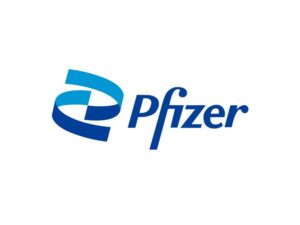
Website – https://www.pfizer.com/
Pfizer and Merck are both pharmaceutical giants, but they compete in different areas and with distinct strengths.
Pfizer is a leader in innovative prescription drugs, particularly focusing on blockbuster medications. They’ve developed well-known drugs like Viagra, Zoloft, and Paxlovid (for COVID-19). Their research and development pipeline emphasizes creating groundbreaking treatments for a wide range of diseases. Pfizer often targets areas of high unmet medical need, allowing them to command premium prices for their drugs.
Merck, on the other hand, has a strong presence in vaccines and established medications. They are known for household vaccines like MMR (measles, mumps, and rubella) and HPV, along with long-standing drugs for conditions like high cholesterol and allergies. Merck leverages its manufacturing expertise to produce large volumes of affordable vaccines and medications, making them a major player in global healthcare initiatives. Additionally, Merck is actively involved in developing new oncology treatments and immuno-oncology therapies.
2. Johnson & Johnson (J&J)
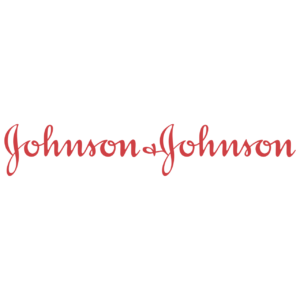
Website – https://www.jnj.com/
In the realm of healthcare, Merck finds another formidable competitor in Johnson & Johnson (J&J). J&J, a behemoth headquartered in New Brunswick, New Jersey, shares a similar focus on pharmaceuticals, medical devices, and consumer health products with Merck. This overlap creates a competitive environment where both companies vie for market share and scientific dominance.
One key area of competition lies in prescription drugs. Both Merck and J&J invest heavily in research and development, tackling a broad range of diseases. For example, they compete in treatments for autoimmune disorders. Merck’s Simponi arthritis medication faces competition from J&J’s Stelara, both targeting similar patient populations. Similarly, their oncology drugs sometimes target the same types of cancers, pushing each other to develop more effective therapies with better patient outcomes.
This competitive dynamic extends to the development of vaccines. Merck has established itself as a leader in traditional vaccines, while J&J has made significant strides in recent years. Notably, both companies were involved in the race to develop COVID-19 vaccines, with J&J offering a single-dose option and Merck collaborating with them on manufacturing efforts. This competition fosters innovation, ultimately leading to a wider range of vaccines and potentially faster advancements in public health.
3. Novartis
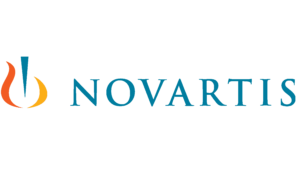
Website – https://www.novartis.com/
Merck’s competitive landscape extends beyond American soil. Novartis, a multinational pharmaceutical giant headquartered in Basel, Switzerland, emerges as another key rival on the global stage. Both Merck and Novartis are titans in the pharmaceutical industry, with vast research and development budgets and a commitment to developing innovative medicines across a broad spectrum of therapeutic areas.
A significant area of competition between Merck and Novartis lies in oncology. Both companies heavily invest in developing cancer treatments, with Novartis boasting a strong portfolio of targeted therapies and immunotherapies. For example, Merck’s Keytruda, a PD-1 inhibitor for various cancers, faces competition from Novartis’ Tafinlar and Mekinist combination therapy for specific types of melanoma. This head-to-head competition drives innovation in cancer treatment, leading to the development of more effective therapies with improved patient outcomes.
The competitive spirit extends beyond oncology. Both Merck and Novartis dedicate significant resources to research in other therapeutic areas, such as cardiovascular disease, neurology, and ophthalmology. This overlap creates a dynamic environment where both companies push each other to develop more effective treatments and potentially faster advancements in healthcare on a global scale.
4. Bristol Myers Squibb (BMS)

Website – https://www.bms.com/
Merck’s competitive landscape gets even more interesting when considering Bristol-Myers Squibb (BMS), another pharmaceutical powerhouse. Headquartered in New York City, BMS boasts a strong presence in the same therapeutic areas as Merck, particularly oncology and immuno-oncology. This overlap fuels a competitive environment that pushes the boundaries of medical science.
The rivalry between Merck and BMS is most evident in the development of cancer treatments. Both companies are heavily invested in immuno-oncology drugs, a class of medications that leverage the body’s immune system to fight cancer. For instance, Merck’s aforementioned Keytruda faces stiff competition from BMS’ Opdivo, another PD-1 inhibitor used for various cancers. This head-to-head competition drives research efforts, leading to the development of more effective and potentially less toxic immuno-oncology drugs for patients.
The competitive spirit extends beyond cancer. Both Merck and BMS actively pursue advancements in other areas like infectious diseases and immunology. This overlap creates a dynamic environment where both companies strive to develop the most effective treatments and potentially faster advancements in healthcare across a broad spectrum of diseases. This competition ultimately benefits patients, as it fuels innovation and leads to a wider range of treatment options.
5. AstraZeneca
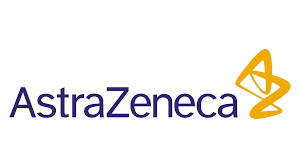
Website – https://www.astrazeneca.com/
Merck’s global reach brings it face-to-face with another formidable competitor – AstraZeneca. This pharmaceutical giant, headquartered in Cambridge, England, shares a similar focus on developing and commercializing innovative medicines across various therapeutic areas. This overlap creates a dynamic environment where Merck and AstraZeneca push each other to bring more effective treatments to patients worldwide.
A prominent battleground between the two companies lies in oncology. Both Merck and AstraZeneca invest heavily in developing cancer treatments, with a particular focus on immuno-oncology drugs. For instance, Merck’s star performer, Keytruda, competes directly with AstraZeneca’s Imfinzi, another PD-1 inhibitor used for several cancer types. This head-to-head competition fosters innovation, leading to the development of more targeted and potentially less toxic treatments for patients battling cancer.
The rivalry extends beyond a single disease area. Merck and AstraZeneca actively compete in other therapeutic areas such as cardiovascular disease, respiratory illness, and diabetes. This overlap across a broad spectrum of healthcare pushes both companies to develop more effective medications and potentially faster advancements in these fields. Ultimately, this competitive spirit benefits patients by offering a wider range of treatment options and accelerating medical progress on a global scale.
6. AbbVie
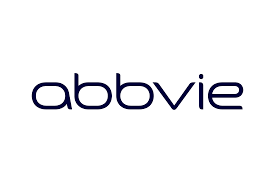
Website – https://www.abbvie.com/
In the world of pharmaceuticals, Merck encounters another significant competitor in AbbVie. AbbVie, headquartered in North Chicago, Illinois, may not be as geographically diverse as some of Merck’s other rivals, but their focus on specific therapeutic areas creates a head-to-head competition that benefits patients. While both companies have a broader reach, a significant area of overlap lies in immunology and oncology, igniting a competitive fire that drives innovation.
Immunology represents a key battleground for Merck and AbbVie. Both companies invest heavily in developing treatments for autoimmune and inflammatory diseases. For instance, Merck’s Simponi arthritis medication faces competition from AbbVie’s Humira, a blockbuster drug for rheumatoid arthritis and other conditions. This head-to-head competition pushes both companies to refine their existing medications and explore novel approaches to treat these chronic illnesses.
The competitive spirit extends to oncology as well. While Merck has a strong presence in immuno-oncology, AbbVie focuses on developing targeted therapies for specific cancers. Although their exact approaches may differ, both companies strive to offer patients the most effective treatments with minimal side effects. This competitive environment fosters innovation in cancer care, leading to a wider range of treatment options and potentially faster advancements in this critical field.
7. Roche
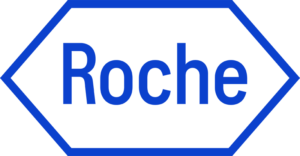
Website – https://www.roche.com/
Merck and Roche, both pharmaceutical heavyweights, compete fiercely in the development and marketing of life-saving drugs. However, their strategic approaches and areas of focus create both competition and occasional collaboration.
Merck excels in large-scale vaccine production and established medications. They are a global leader in routine vaccinations like MMR (measles, mumps, and rubella) and HPV. Their manufacturing prowess allows them to offer these essential treatments at affordable prices, making them a significant player in global healthcare initiatives. Additionally, Merck has a strong presence in areas like diabetes and cardiovascular disease with well-established drugs. They are also actively involved in oncology research, developing new cancer treatments.
Roche, on the other hand, emphasizes innovative drugs and personalized medicine. They are a leader in oncology therapies and diagnostics, offering targeted treatments based on a patient’s specific genetic makeup. Roche’s focus on cutting-edge research allows them to develop highly effective drugs, often commanding premium prices. This focus on personalized medicine positions them at the forefront of medical advancements. While they may not directly compete with Merck in every area, their dominance in oncology and targeted therapies makes them a significant rival.
8. GlaxoSmithKline (GSK)
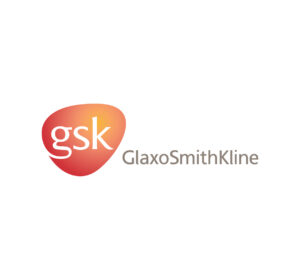
Website – https://www.gsk.com/en-gb/
Merck’s competitive landscape wouldn’t be complete without mentioning GlaxoSmithKline (GSK). This British multinational pharmaceutical giant, headquartered in London, might seem like an unlikely rival at first glance. However, both Merck and GSK have a significant presence in specific therapeutic areas, creating a dynamic environment that fosters innovation.
One area where Merck and GSK go head-to-head is in vaccines. While Merck has traditionally been a leader in established vaccines, GSK is making significant strides in the field. They both compete in developing and marketing vaccines for various infectious diseases. For instance, Merck’s MMR vaccine for measles, mumps, and rubella faces competition from GSK’s combined measles, mumps, rubella, and varicella (chickenpox) vaccine. This competition drives research efforts to develop more comprehensive and effective vaccines, ultimately leading to better protection for public health.
The rivalry extends beyond just vaccines. Both Merck and GSK have a strong presence in respiratory medications. While Merck might focus on specific respiratory illnesses, GSK boasts a broader portfolio in this area. This overlap creates a competitive environment where both companies strive to develop more effective and potentially faster-acting treatments for respiratory conditions, improving the lives of patients suffering from these ailments.
These competitors and alternatives vary in terms of their product portfolios, therapeutic focus, geographic presence, and research and development pipelines. Despite facing stiff competition, Merck maintains its competitive edge through its strong focus on research and development, innovative drug discovery, strategic partnerships, and a commitment to addressing unmet medical needs.
Also Read: Who are Johnson & Johnson’s Top Competitors?
To read more content like this, subscribe to our newsletter


